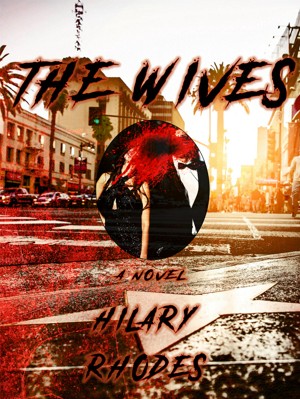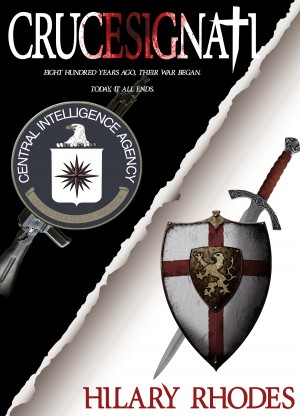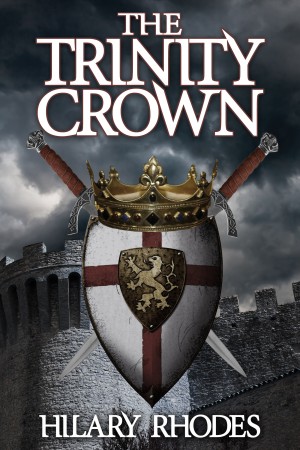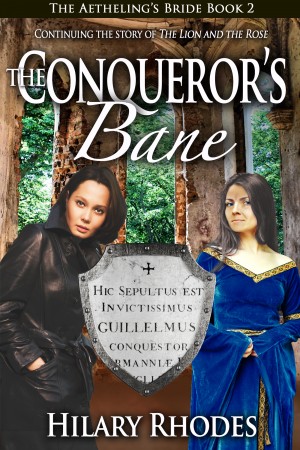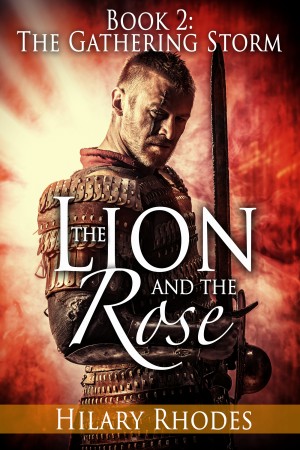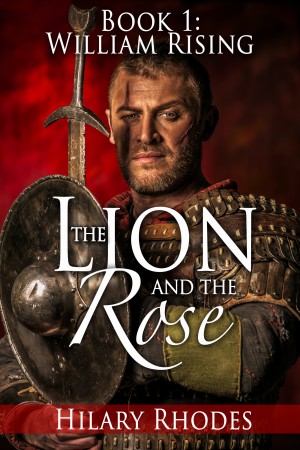Connect with the Author
Share with Friends
Interview with Hilary Rhodes
Published 2014-06-16.
Smashwords Interviews are created by the profiled author or publisher.
Books by This Author
The Wives: A Novel
by Hilary Rhodes
Price:
$5.99 USD.
Words: 208,890.
Language:
English.
Published: October 14, 2023
.
Categories:
Fiction » Thriller & suspense » General
A young woman marries a famous Hollywood movie star, and is drawn into his glamorous world and its dirty secrets. She uncovers the scandals around powerful men in the industry and the attempts to keep them hidden, and eventually takes matters into her own hands. But as the project spirals out of control, it runs the risk of destroying everything she has ever believed in.
Crucesignati
by Hilary Rhodes
Price:
$4.99 USD.
Words: 143,400.
Language:
English.
Published: September 15, 2016
.
Categories:
Fiction » Thriller & suspense » Action & suspense
Based on an actual quote in a medieval chronicle, this unique thriller centers around King Richard the Lionheart and his Muslim counterpart, Sultan Saladin, being brought back to life in the modern world, as they are caught up in the War on Terror and powerful interests from all sides. If they are not tracked down in time, the consequences will be unimaginable.
The Trinity Crown
by Hilary Rhodes
Price:
$3.99 USD.
Words: 361,100.
Language:
English.
Published: February 11, 2016
.
Categories:
Fiction » Historical » Medieval
From the author of The Lion and the Rose and The Aetheling's Bride series comes The Trinity Crown, leading us into the world of one of the most famous -- and controversial -- kings in English history: Richard the Lionheart. It continues the story of William the Conqueror's legacy and his descendants, the dynamic, talented, and fatally flawed Plantagenets.
The Conqueror's Bane
by Hilary Rhodes
Series: The Aetheling's Bride, Book 2.
Price:
$3.99 USD.
Words: 163,990.
Language:
English.
Published: September 30, 2015
.
Categories:
Fiction » Historical » Medieval
Sequel to The Outlander King, The Conqueror's Bane chronicles the last chapters of the life of William the Conqueror, and the entwined stories of two remarkable women: Aislinn and Selma. Aislinn must face new challenges and struggle to forgive her enemies, while Selma must uncover the full truth of Aislinn's manuscript and face her own dark past.
The Outlander King
by Hilary Rhodes
Series: The Aetheling's Bride, Book 1.
Price:
$3.99 USD.
Words: 161,580.
Language:
English.
Published: June 1, 2015
.
Categories:
Fiction » Historical » Medieval
The story of The Lion and the Rose continues with the tale of two remarkable women: Aislinn, a seventeen-year-old English girl caught up in the army of the “outlander king,” the man who will become known as William the Conqueror, and Selma Murray, an American graduate student at Oxford University, researching her mysterious chronicle almost nine hundred years later.
The Lion and the Rose, Book Two: The Gathering Storm
by Hilary Rhodes
Series: The Lion and the Rose, Book 2.
Price:
$3.99 USD.
Words: 101,270.
Language:
English.
Published: September 30, 2014
.
Categories:
Fiction » Historical » Medieval
The Lion and the Rose: William Rising introduced us to the young William, Duke of Normandy, and his treacherous childhood, as he fought his own barons to survive and claim his birthright. The Gathering Storm plunges us even deeper into his unfolding story. Now twenty-two, he has won his most pivotal battle, but impossible struggles loom -- and very few of his enemies are actually defeated.
The Lion and the Rose, Book One: William Rising
by Hilary Rhodes
Series: The Lion and the Rose, Book 1.
Price:
$3.99 USD.
Words: 114,840.
Language:
English.
Published: June 19, 2014
.
Categories:
Fiction » Historical » Medieval
William of Normandy: visionary, ambitious, indomitable, cunning. . . the man who would change the destinies of England and France forever. William Rising tells his story as never before, from crippling childhood loss, political treachery, and adolescent betrayal, to the making of a conqueror.

